Electric boilers are becoming more popular in London, especially in homes where gas is not available or where people want a greener way to heat their houses. These boilers use electricity instead of gas or oil to heat water, which is then sent to radiators to warm up rooms. They are quiet, clean, and often easier to install in small flats or apartments.
As more people move towards electric heating, one common question is: how many radiators can an electric boiler run? This is a very important thing to know because if you connect too many radiators to a small boiler, it won’t heat your home properly. On the other hand, if you buy a very powerful boiler for a small flat, you may end up wasting energy and money.
In this blog, we will help you understand how many radiators you might need based on your home size and boiler power. We’ll also explain how different factors like insulation and room layout affect this decision. This guide is useful if you are planning to install a new electric boiler or want to upgrade your heating system in London.
Electric boilers are also great for eco-conscious homeowners. Since they don’t burn fuel, they produce no emissions in your home. If powered by renewable electricity, they can be 100% green. For more details, you can check Energy Saving Trust’s guide on electric heating.
Let’s dive in and find out how many radiators you really need!
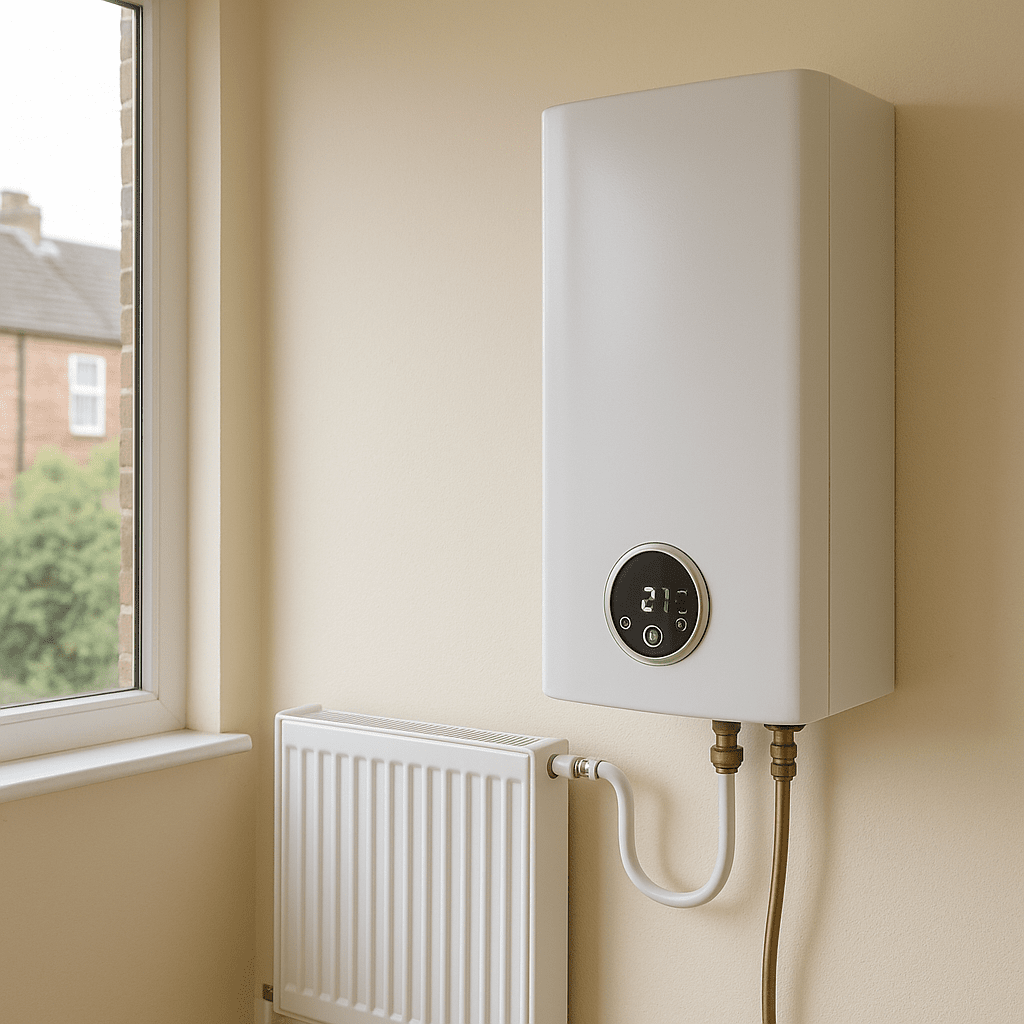
How Electric Boilers Work
Electric boilers are a modern and clean way to heat your home. They work by using electricity to heat water, which is then sent through pipes to your radiators or underfloor heating system. There is no flame or burning of fuel — only an electric heating element inside the boiler, similar to what you find in an electric kettle.
Once the water is hot, it flows through the radiators in each room, warming your home. If it’s a combi boiler, it can also supply hot water to your taps without needing a separate water tank.
Electric vs Gas Boilers
The main difference is how they produce heat:
- Gas boilers burn natural gas to create heat.
- Electric boilers use electricity, making them cleaner and safer (no risk of gas leaks or carbon monoxide).
Electric boilers are perfect for flats or homes without a gas connection, which is common in many parts of London. They’re also quiet and require less space than gas boilers.
Types of Electric Boilers
- Combi Boiler – Heats water on demand for both radiators and taps. No cylinder needed.
- System Boiler – Needs a hot water cylinder. Good for homes with higher water use.
- Heat-Only Boiler – Also called a regular boiler. Needs both a hot water cylinder and a cold water tank. Ideal for older heating systems.
You can read more about types of electric boilers in this GreenMatch UK guide.
If you’re thinking about switching from gas to electric, check out this helpful overview by EDF Energy.
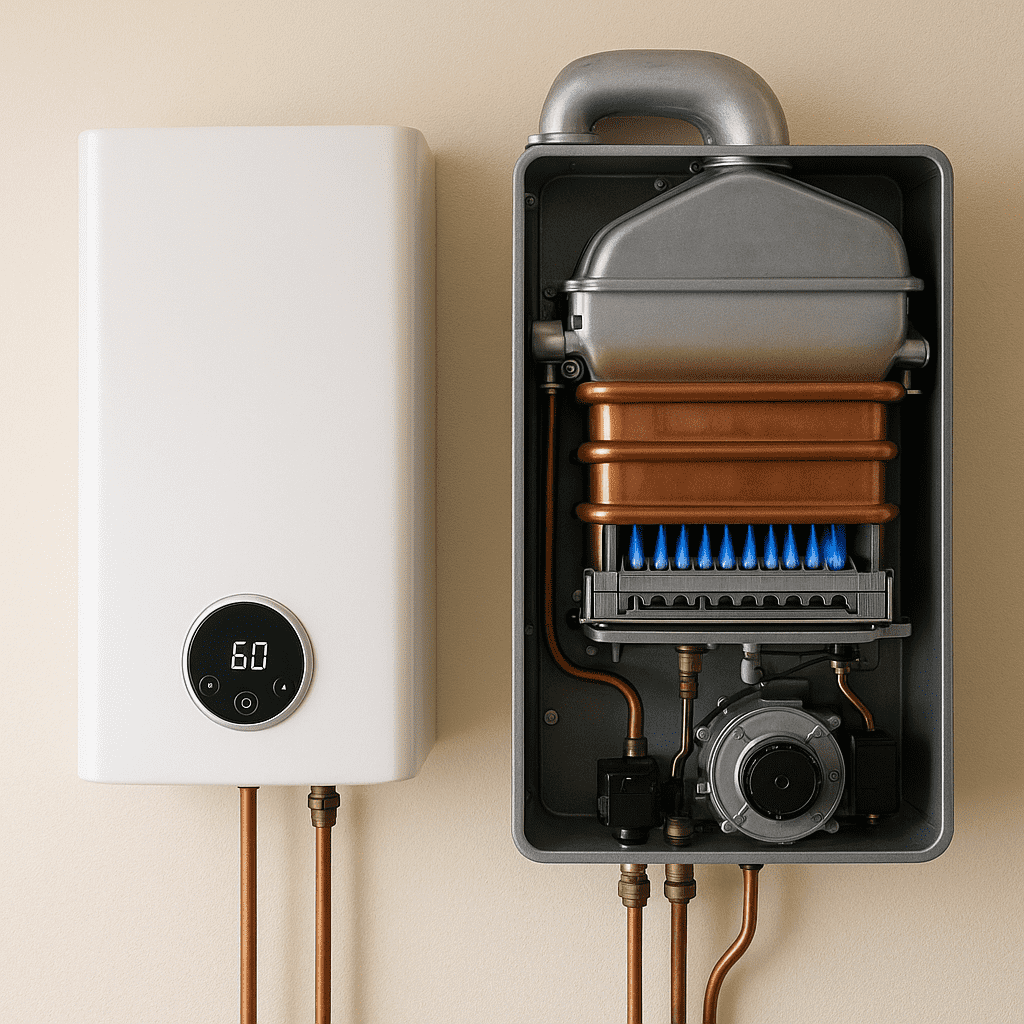
Key Factors That Influence the Number of Radiators
If you’re planning to install an electric boiler in your London home, one of the most important questions is: how many radiators can it support? The answer depends on several key factors.
1. Boiler Output (in kW)
The power of your electric boiler is measured in kilowatts (kW). A simple rule to follow is:
👉 1.5 kW = 1 radiator (approx.)
So:
- A 6kW boiler can handle around 4 radiators
- A 12kW boiler can manage about 8 radiators
You can use a free online radiator calculator to get a rough estimate for your home.
2. Insulation Level
Well-insulated homes hold heat better, meaning you need fewer radiators or a smaller boiler. If your home has old windows or poor wall insulation, you may need more power to stay warm.
3. Room Size and Layout
Bigger or open-plan rooms need more heat. A small bedroom may only need one radiator, but a large living room might need two or more.
4. Climate in London
London has mild winters compared to other parts of the UK. Still, you’ll want a system that keeps you warm during colder months, especially from November to February.
5. Hot Water Needs (Combi Boilers)
If you’re using a combi electric boiler that also supplies hot water, it needs more power. More bathrooms = higher demand.
Always consult a qualified heating engineer before choosing your boiler. You can find local registered professionals at Gas Safe Register, even for electric boiler advice.
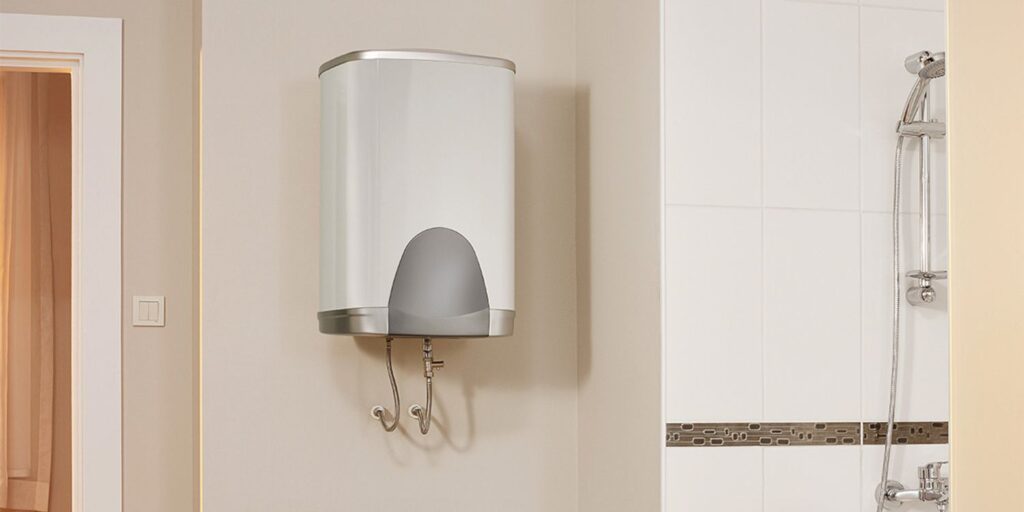
Typical Radiator Requirements Based on Property Size
The number of radiators you’ll need depends mainly on how big your home is and how well it holds heat. Below is a simple guide to help you plan:
🏠 Studio or 1-Bedroom Flat: 3–5 Radiators
These homes are smaller and easier to heat.
Example:
- 1 radiator in the bedroom
- 1 in the living room
- 1 in the bathroom
- Optional extras for kitchen or hallway
🏡 2-Bedroom House or Flat: 5–7 Radiators
These homes often have more space and rooms.
Example:
- 2 bedrooms (1 radiator each)
- 1–2 in the living room
- 1 in the kitchen
- 1 in the hallway
- 1 in the bathroom
🏠 3-Bedroom House: 7–10 Radiators
Larger homes need more heat coverage.
Example:
- 3 bedrooms
- 2 in the living room
- 1 in the dining area
- 1 kitchen, 1 bathroom, and hallway
- Optional: utility or guest rooms
🏡 4+ Bedroom House: 10+ Radiators
For large or multi-story homes, you may need even more radiators depending on layout.
Tip: Consider installing zoned heating for better control in bigger homes.
Remember, these numbers are just a guide. The actual number you need may change depending on room size, insulation, and boiler output. A well-insulated home may need fewer radiators to stay warm.
You can try the radiator sizing calculator from Best Heating UK to get a more accurate idea.
For professional advice, it’s always best to get a home survey from a qualified heating engineer in London.
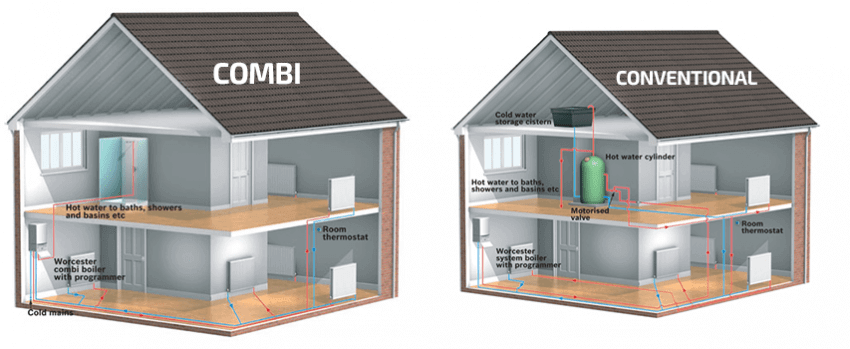
Choosing the Right Electric Boiler Size
Picking the right size electric boiler is very important for keeping your home warm and saving money on energy bills. If the boiler is too small, it won’t heat your house properly. If it’s too big, it will waste electricity and cost more to run.
🧮 How to Calculate Heating Load
Your home’s heating needs are measured in BTUs (British Thermal Units) or kW (kilowatts).
A quick estimate:
- 1kW of boiler power is needed for every 10 square metres of room space.
So, if your home is 80 square metres, you may need an 8kW electric boiler.
You can use a free online BTU or kW calculator to get a better idea:
👉 Best Heating BTU Calculator
👉 PlumbNation Heating Calculator
✅ Don’t Oversize or Undersize
- Oversized boiler: May heat up too fast and cycle on/off often. This reduces lifespan and increases bills.
- Undersized boiler: Will struggle to heat your home during colder months, especially in winter.
Always consider the number of rooms, radiators, insulation, and hot water demand if using a combi boiler.
👷♂️ Get Professional Advice
Even the best online tools give only an estimate. A heating engineer can visit your home and check the size, layout, insulation, and pipework to recommend the correct boiler. In cities like London, space and wiring can also affect your options.
For trusted experts, visit TrustMark to find certified heating professionals near you.

Frequently Asked Questions (FAQs)
Bonus Tip: Smart Heating Controls
If you want to save energy and control your electric boiler better, smart heating controls are a great solution. These include smart thermostats, radiator valves, and heating zones — all designed to give you more control over your home’s temperature.
✅ Why Thermostats Matter
A smart thermostat lets you set the perfect temperature in your home using your phone or tablet. You can even set schedules, like turning off the heat when you’re not home or lowering the temperature at night while you sleep.
Some popular smart thermostats in the UK include Nest, Hive, and Tado°. These can connect directly to your electric boiler and adjust heat automatically based on weather or your location.
🏡 What Is Zoning?
Zoning means dividing your home into different heating areas — for example, bedrooms upstairs and living areas downstairs. With smart radiator valves, you can heat only the rooms you’re using. This means:
- Less energy wasted
- More comfort in specific rooms
- Lower heating bills
📱 Easy to Use, Big Savings
Smart controls can help reduce heating costs by up to 30%, according to some suppliers. They also make life easier because you don’t need to adjust every radiator manually.
Want to learn more? Check out this helpful guide from Octopus Energy on how smart controls can improve home heating in the UK.
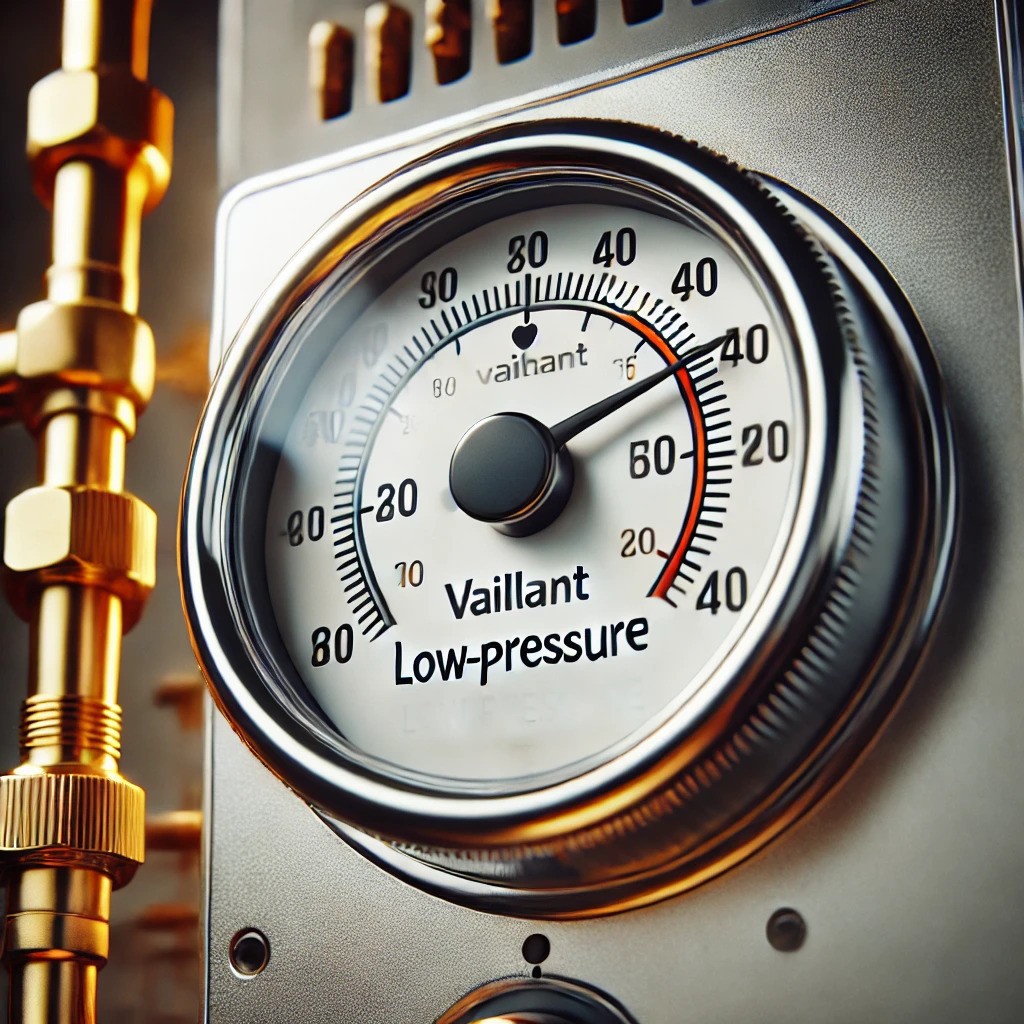
Conclusion
Choosing the right electric boiler and number of radiators is key to keeping your home warm and energy bills low — especially in a busy city like London.
We’ve covered how electric boilers work, how many radiators are needed for different home sizes, and the importance of factors like insulation, room size, and hot water demand. We also explained how to calculate your boiler size and why getting it right matters — too small, and your home stays cold; too big, and you waste energy and money.
Smart heating controls like thermostats and zoning systems can also make a big difference, giving you more comfort and control over your energy use.
But remember — every home is different. That’s why it’s always best to get advice from a professional. A qualified heating expert can assess your property, recommend the right boiler size, and design a heating system that fits your needs perfectly.
✅ Next step?
If you’re in London and planning to switch to electric heating or upgrade your system, reach out to a certified local expert. They’ll help you make the right choice and give you a quote for supply and installation.
You can use TrustMark or Rated People to find trusted heating engineers near you.
Still have questions? Don’t wait until winter — get a proper assessment now and stay warm, smart, and energy-efficient.
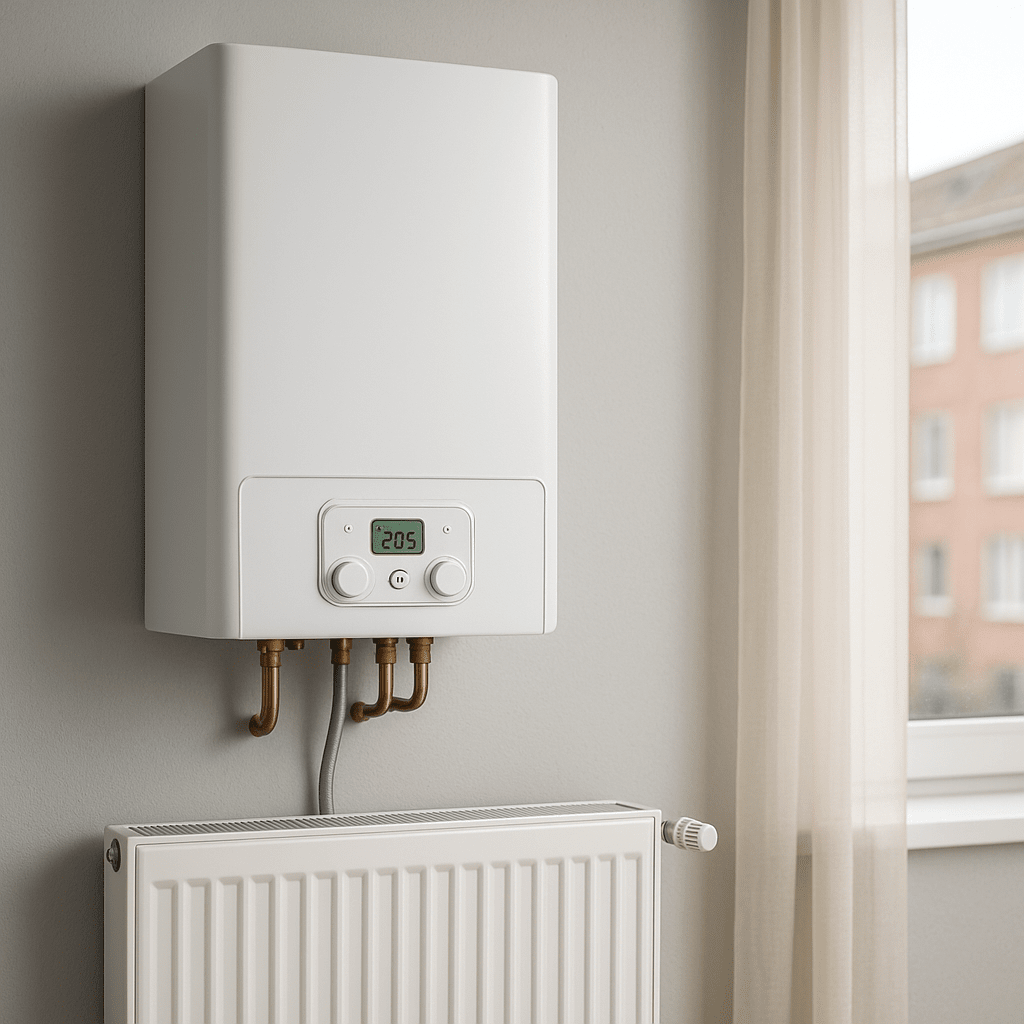
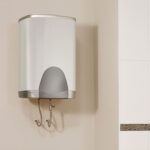
Hi, how have you been lately?